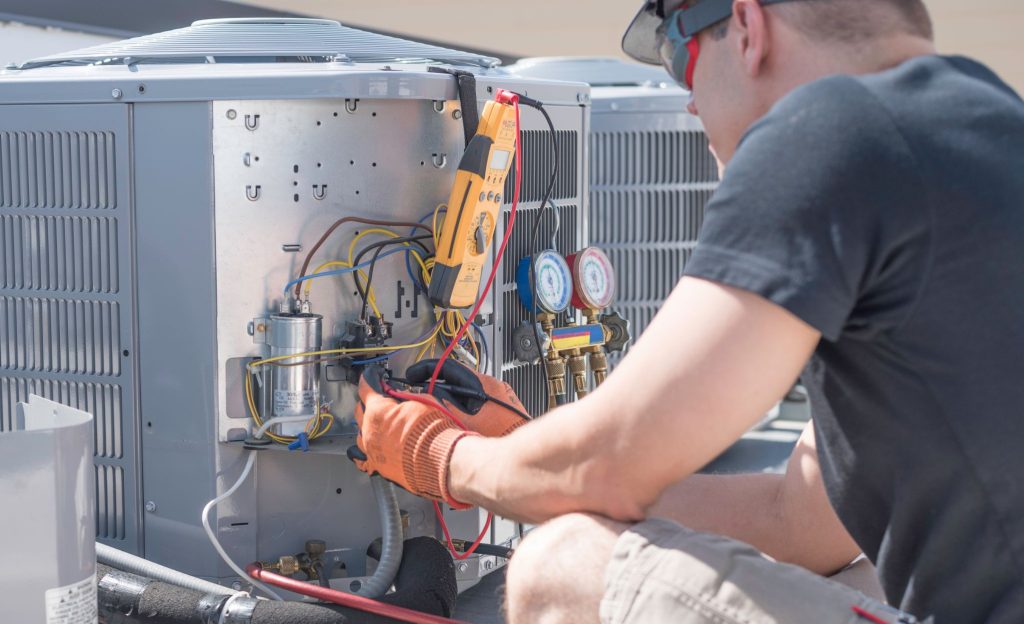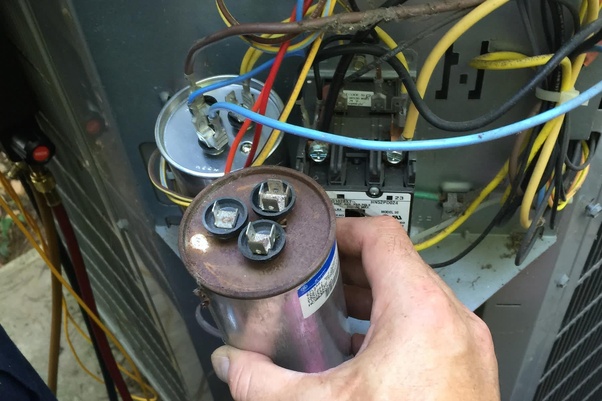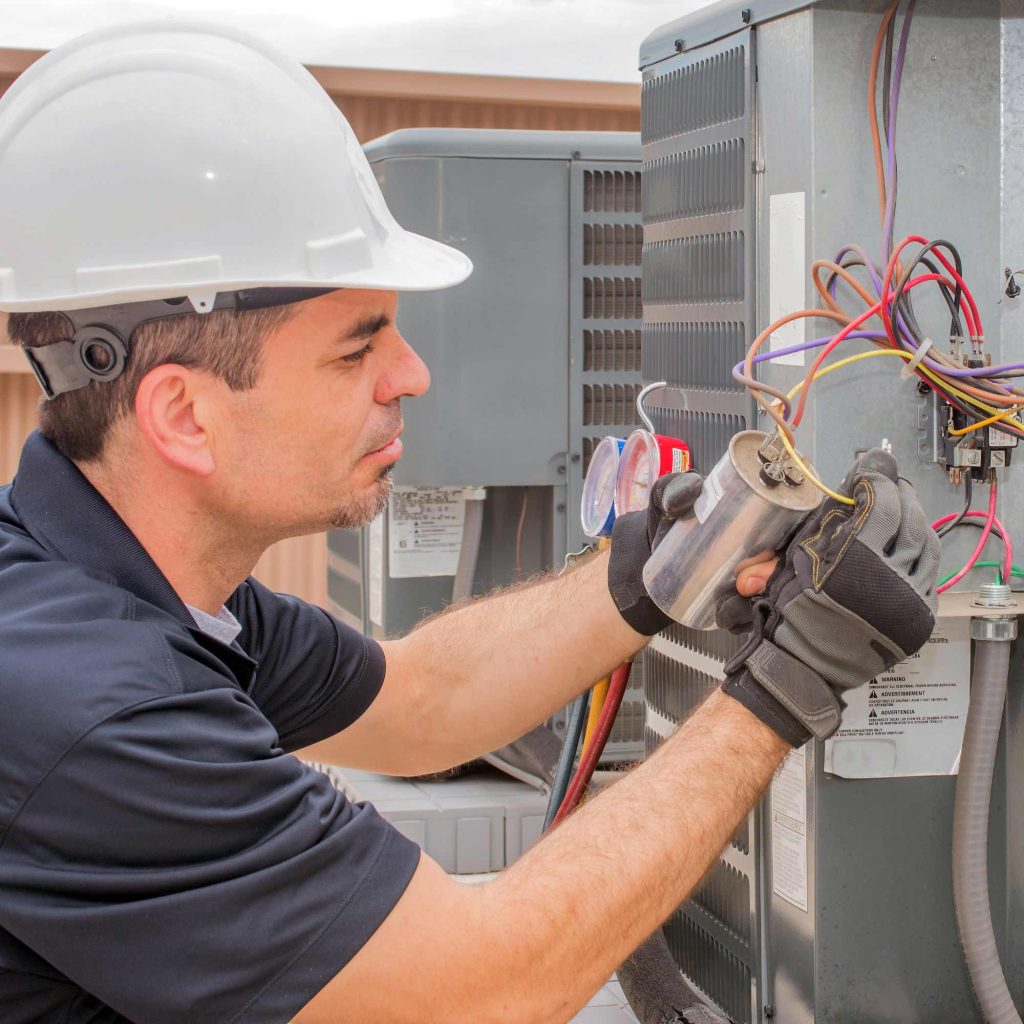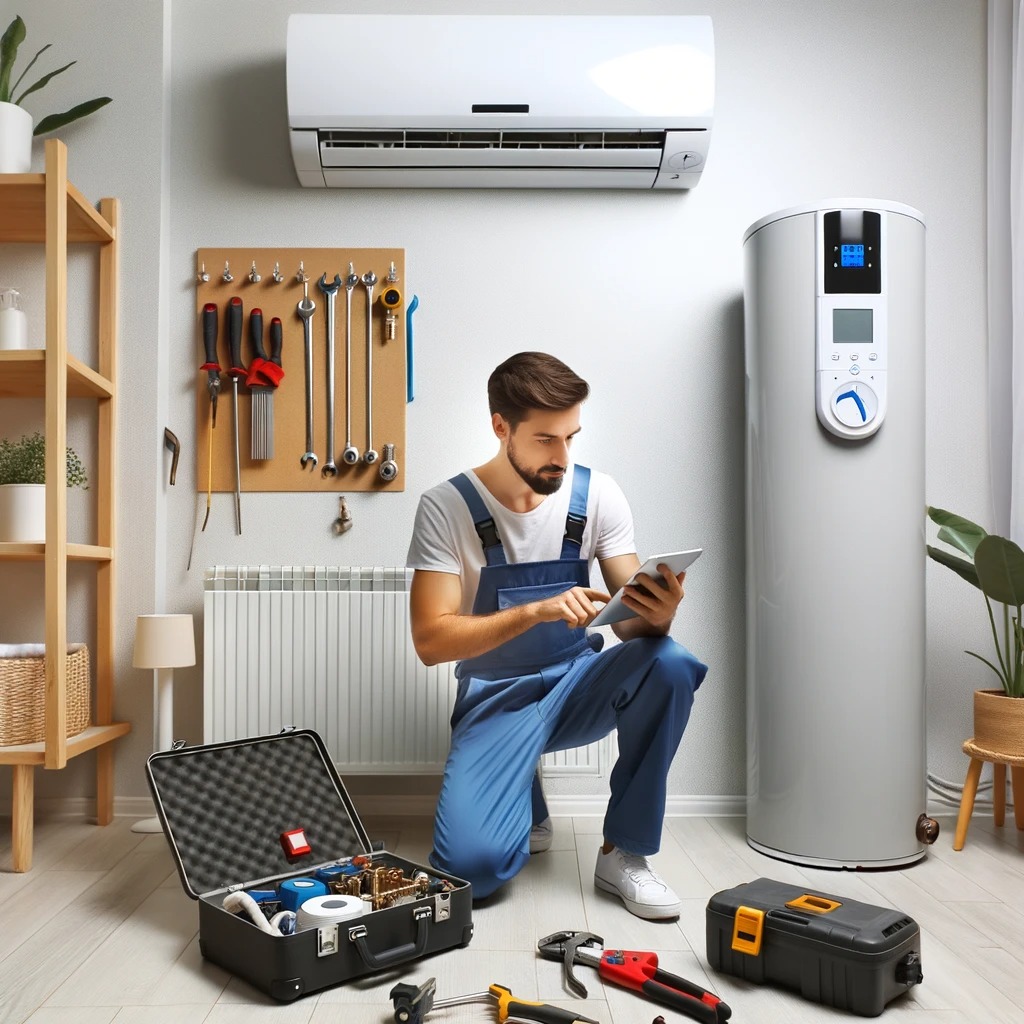Capacitors are essential components in various electrical systems, including HVAC (Heating, Ventilation, and Air Conditioning) units. Their involvement in HVAC systems is critical to maintaining the equipment’s best performance and lifespan.
In this blog, we will delve into what a capacitor does in HVAC, its types, functions, and the signs that indicate a failing capacitor.

What Does a Capacitor Do in HVAC?
A capacitor in HVAC systems serves primarily to store and release electrical energy, helping to start and run the motors efficiently. In simple terms, it acts as a temporary battery, providing the necessary boost to the motors during startup and maintaining their smooth operation.
Types of Capacitor in HVAC
There are mainly two types of capacitor in HVAC systems. Let’s see what does a capacitor do in HVAC:
1. Start Capacitors
– Provide a high burst of energy to start the motor.
– Used only during the startup phase.
– Disengage once the motor reaches a certain speed.
2. Run Capacitors
– Supply a steady amount of energy to keep the motor running.
– Operate continuously while the motor is on.
– Help in maintaining the efficiency and stability of the motor.

Functions of Capacitor in HVAC Systems
When the question arises, what does a capacitor do in HVAC? Below is our answer:
Starting the Motor
One of the primary functions of a capacitor in HVAC systems is to start the motor. The start capacitor provides a significant surge of power to initiate the motor’s operation, ensuring that it starts quickly and efficiently.
Running the Motor
After the motor starts, the run capacitor takes over. It supplies a continuous flow of energy to keep the motor running smoothly. This helps in maintaining the efficiency of the motor and prevents it from overheating or stalling.
Power Factor Correction
Capacitors also play a crucial role in power factor correction. By improving the power factor, capacitors help in reducing the overall electrical consumption of the HVAC system, leading to energy savings and lower electricity bills.
Signs of a Failing Capacitor in HVAC
A failing capacitor can lead to several issues in your HVAC system. Here are some signs that indicate a capacitor problem:
HVAC System Not Starting: If your HVAC system fails to start, a faulty start capacitor could be the culprit.
Humming Noise: A humming noise coming from the unit can indicate that the capacitor is struggling to start the motor.
System Shutting Down: If your HVAC system starts but then shuts down unexpectedly, the run capacitor might be failing.
Burning Smell: A burning smell could indicate that the capacitor has overheated or burnt out.
Physical Damage: Visible damage, such as bulging or leaking fluid, is a clear sign that the capacitor needs replacement.
Importance of Regular Maintenance
Now that we know what does a capacitor do in HVAC we can look into the importance of its maintenance. Regular maintenance of your HVAC system is essential to ensure that all components, including capacitors, are functioning correctly.
Scheduled inspections by a professional can help in identifying potential issues before they become major problems.
How to Replace a Capacitor in HVAC
If you suspect that your HVAC capacitor is failing, it is crucial to replace it promptly. Here are the steps to replace a capacitor in HVAC:
1. Turn Off Power: Ensure that the power to the HVAC system is turned off to avoid electrical shocks.
2. Discharge the Capacitor: Use a resistor or a discharge tool to safely discharge th stored energy in the capacitor.
3. Remove the Old Capacitor: Disconnect the wires and remove the old capacitor from its mounting bracket.
4. Install the New Capacitor: Connect the new capacitor in the same manner as the old one and secure it in place.
5. Restore Power: Turn the power back on and test the HVAC system to ensure it is working correctly.
Understanding what does a capacitor do in HVAC systems is vital for anyone looking to maintain their HVAC unit’s performance and longevity. Capacitors play a crucial role in starting and running the motors, improving efficiency, and ensuring the system operates smoothly. Regular maintenance and timely replacement of faulty capacitors can save you from costly repairs and ensure a comfortable indoor environment. So, the next time you think about HVAC maintenance, remember the critical role a capacitor plays in keeping your system running efficiently.



